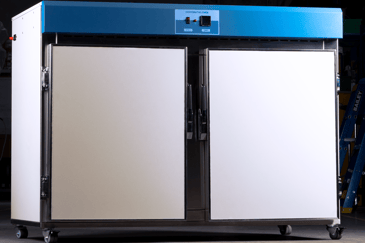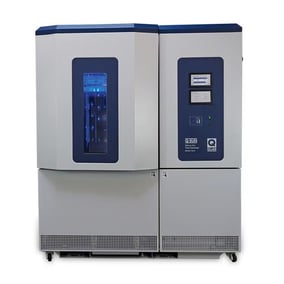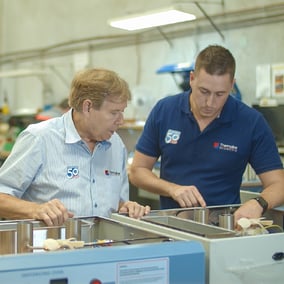Laboratory drying ovens are invaluable tools used in a wide range of applications in both the scientific and industrial fields. These versatile devices provide a controlled environment for the efficient removal of moisture or volatile components from various materials. The aim of this blog article is to discuss key features, applications, and benefits of laboratory drying ovens, shedding light on their significance in modern research and testing processes.

What is a Laboratory Drying Oven?
Laboratory drying ovens are specialized equipment designed to remove moisture, solvents, and other volatile substances from samples or products (please note that for volatiles and solvents, special safety features are required, i.e., AS1681). They maintain a consistent and controllable temperature, ensuring a uniform and precise drying process. These ovens are commonly used in research laboratories, pharmaceutical industries, food processing units, and other sectors where moisture needs to be removed as it plays a critical role in product quality or before testing can occur.
Key Features of Laboratory Drying Ovens
1. Temperature Control: Drying ovens feature precise temperature controls, allowing researchers to set and maintain specific temperature levels for efficient drying without causing thermal degradation of the samples. This is essential, particularly in drying plant material for testing and also for testing materials where you are looking at the available content of an analyte.
2. Timer and Programmable Settings: Most modern drying ovens come equipped with timers and programmable settings, enabling users to automate the drying process and reduce manual monitoring.
3. Air Circulation: To ensure even heat distribution, laboratory drying ovens are equipped with a forced air circulation system. This feature minimizes temperature gradients within the chamber, guaranteeing consistent results across the entire sample. Thermoline drying ovens have the air pass over the samples from back to front, which ensures even drying on each shelf.
4. Safety Features: Drying ovens are equipped with safety mechanisms such as overheat protection, alarms, and automatic shut-off to prevent accidents and protect both the samples and the oven itself.
Applications of Laboratory Drying Ovens
1. Research and Development: In scientific research, laboratory drying ovens are commonly used to remove moisture from samples before conducting analytical tests or experiments. They are crucial in fields like chemistry, materials science, and environmental science.
2. Pharmaceutical Industry: Pharmaceutical companies utilize drying ovens to remove moisture from active pharmaceutical ingredients (APIs) or excipients, ensuring the stability and efficacy of the final drug product.
3. Food Processing: In the food industry, drying ovens are employed to remove moisture from food products, extending their shelf life and preventing spoilage.
4. Materials Testing: Drying ovens are employed to evaluate the moisture content of construction materials, wood, textiles, and other industrial products, ensuring they meet quality standards.
5. Electronics and Semiconductors: These ovens play a crucial role in the manufacturing of electronic components, as they help in the drying and curing of various materials used in electronics.
Benefits of Using Laboratory Drying Ovens
1. Precision and Reproducibility: Drying ovens offer precise and repeatable drying conditions, allowing researchers and manufacturers to achieve consistent results in their experiments and production processes.
2. Time Efficiency: Drying ovens expedite the drying process, saving valuable time in research and production settings.
3. Improved Product Quality: By controlling the drying process, these ovens help maintain product quality, ensuring the end products are free from moisture-related defects.
4. Cost-Effectiveness: Investing in a reliable drying oven can lead to cost savings by aiding in reducing waste, improving process efficiency, and preventing product recalls.
5. Versatility: Drying ovens can handle a wide range of materials, making them suitable for diverse applications across various industries.
Conclusion
Laboratory drying ovens are indispensable tools in modern research and manufacturing processes, providing precise, efficient, and consistent moisture removal. With their temperature control, programmable settings, and safety features, these ovens offer a host of benefits across diverse applications. As technology moves forward, we can expect these devices to continue playing a vital role in scientific discoveries, product development, and quality assurance in various industries.
If you have any questions at all or requirements for a laboratory drying oven, please contact our sales team for assistance.






